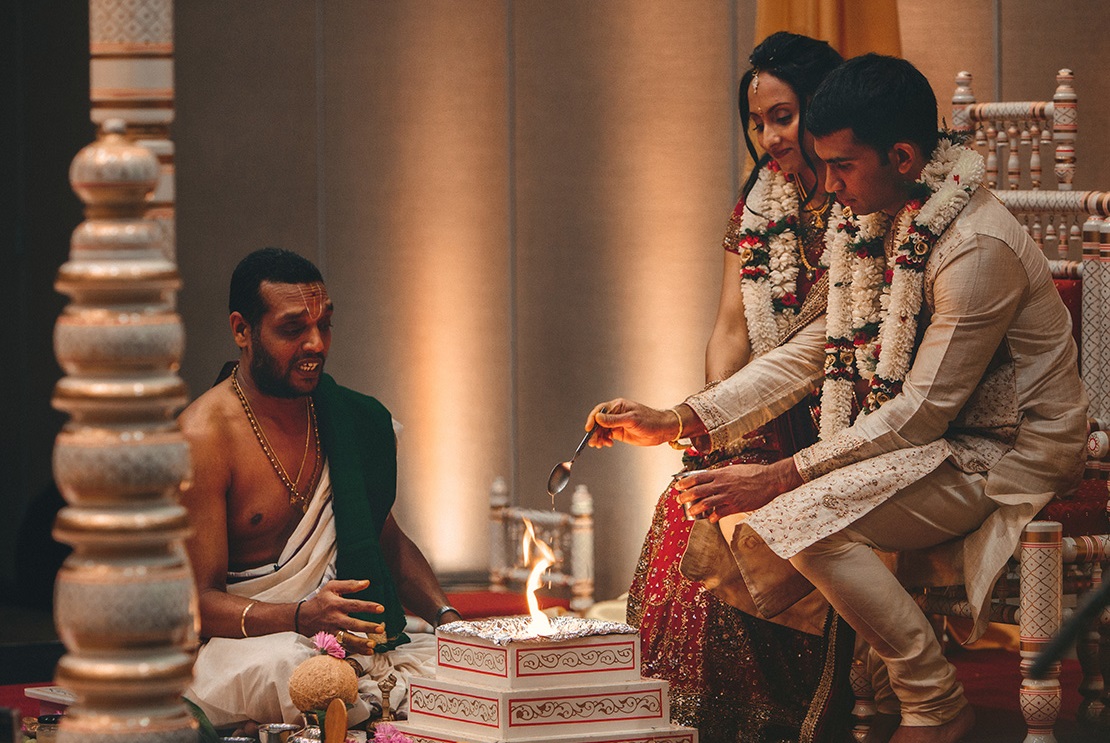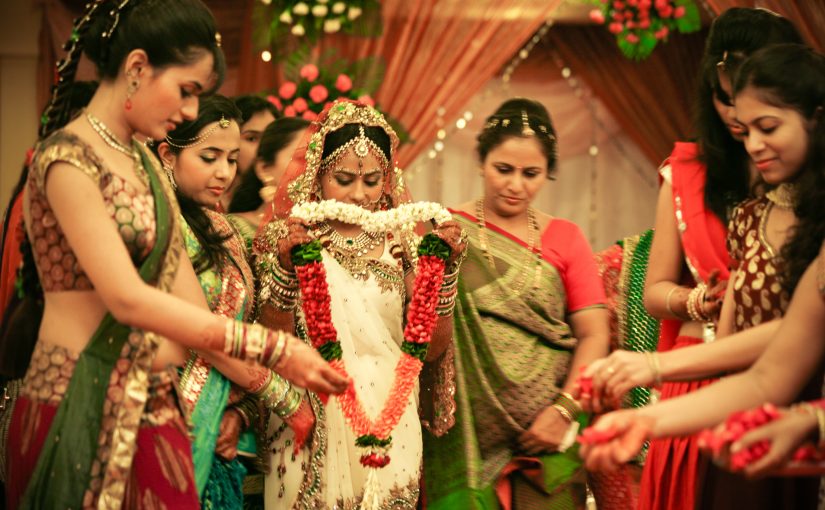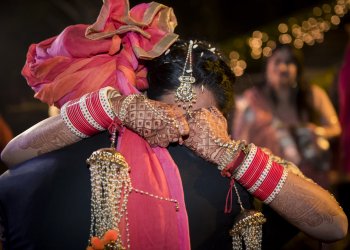Most of us have would have witnessed a Hindu wedding and must have got confused when the bride and groom circles around the fire for many turns. The bride and groom are not merely warming up for their lives ahead with this practice; they are exchanging the sacred vows of marriage. Here is the list of vows exchanged at Hindu weddings and their meanings. Discerning the meaning the ceremony will help you appreciate it more.
First Vow
The promises begin with the groom when he chants ‘om eshaekapadibhavaitiprathaman’ which is more of a request than a command and can be translated to ‘you will proffer food and be helpful of me in every way. The bride replies to this vow by saying ‘dhanamdhanyampadevadet’ which means that she will bear the responsibility for the matters of household, finance, and food. In a nutshell, the husband promises to provide the resources and means to ensure a happy, wealthy life and wife promises to manage the execution of it.

Second Vow
The second vow revolves around the house and the progeny; the groom chants ‘om oorjejaradastayaha’ and he promises to protect children and house together to which the bride replies ‘kutumburnrakshayishyammisaaravindharam’ which means that she will underpin her husband’s efforts to secure the family and be his source of strength in doing so.
Third Vow
The third vow begins with the groom imploring to the Almighty to render the couple healthy and wealthy to strive for the education, longevity, and good life of their children with the mantra ‘om rayassantujoradastayaha’. The bride responds to this by saying ‘tava bhakti as vadedvachacha’ where she promises to love her husband unconditionally for the rest of her life and to remain faithful.
Fourth Vow
During the fourth vow, the groom acknowledges the significance of wife’s role in his life by saying ‘om mayo bhavyasjaradastaya ha’ and he prays they may be blessed with noble children. The wife responds to this vow by saying ‘lalayami cha padevadet’ and promises that she will shower their life together with joy.
Fifth Vow
With the fifth vow- ‘om prajabhyahasantujaradastayaha’, the groom promises the wife that she will be his best friend and well-wisher for life. To this the Bride reciprocates “arte arbasapadevadet” and with the vow, she promises that she will love and cherish their family for the rest of her life. She further establishes that her happiness will be her husband’s happiness and his sorrow, hers. The bride also promises that she will trust her husband and honor him in the fifth vow.

Sixth Vow
For the sixth vow the groom says ‘Rutubhyah shat padibhava’ and expresses his immense joy in welcoming the bride as his wife. The vow can be translated as ‘we have taken the six steps together and my heart brims with joy. The vow also poses a question where the groom asks the bride that will she fill his heart with joy like that for the rest of their lives together. To this the bride replies that she will always be by her husband’s side with the vow ‘yajnahomshashthevachovadet’.
Seventh Vow
For the seventh vow, the groom says ‘Om sakhijaradastayahga’ and officially declares them as husband and wife. The bride welcomes the proclamation by saying ‘Attramshesakshinovadetpade’ and accepts that she is his wife and will love and honor each other for the rest of their lives.
All those hard to comprehend Sanskrit words uttered by the couple holds great implication and sincere promises. It marks the beginning of the new journey of the groom and bride as husband and wife and cements their relationship.






















